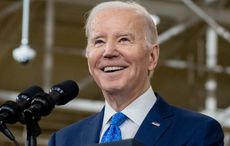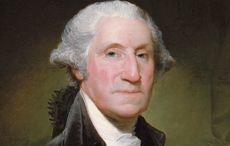The unsung hero of the peace deal reached in Northern Ireland last week was an unlikely figure.
Arlene Foster, who was temporarily appointed first minister after Peter Robinson stepped aside, played a key role in creating the deal, according to insiders.
“It would not have been done without Arlene,” stated one talks participant in Belfast, who pointed out that Robinson was distracted during much of the early negotiations and more than a little suspicious that Sinn Fein would exploit his evident political weakness.
Robinson stepped down temporarily after revelations about his wife’s affair with a 19-year-old, and the story that he and his wife arranged for an illegal loan for the young man, Kirk McCambley.
During that period it was Foster (pictured above), who took the initiative and played a key role as a conduit between Sinn Fein and the DUP leader.
“Arlene is very clever, very smart, she’s quite hardline but can work with people better than Robinson,” said the source. “She has an ability to get where she wants to.”
Foster impressed major businessmen in America during a recent visit here when she was seeking investment in Northern Ireland.
Now that she has replaced Robinson even on a temporary basis, her name will be to the forefront as leader if Robinson is forced to step down.
In that regard Robinson is clearly heading for more problems, with the revelations on Tuesday in The Belfast Telegraph that he and his wife lobbied for the builder who gave the loans to McCambley on a previous project.
Amazingly, though, the furor over Robinson’s wife may well have helped the process. At the time it looked hopelessly deadlocked, but it also gave Robinson the desire to reach a deal, to show that he still mattered when it came to politics and that he could lead.
The other unsung hero of the deal was Secretary of State Hillary Clinton. She and her U.S. envoy Declan Kelly had given an undertaking to remain honest brokers, but as the talks looked headed for failure they took a gamble.
Kelly went public in the Irish media about the consequences in America if the deal collapsed. He talked about the impossibility of selling investment opportunities in Northern Ireland if it became clear that the political will for stable government was not there.
His interview coincided with news of several bad job losses in Northern Ireland, and focused attention once again on the economic damage that no deal would bring.
The story became a major factor in how the parties concerned were dealing with the negotiations. On talk radio in Belfast there was hundreds of angry calls from both sides calling on their leaders to strike a deal.
The American pressure worked, as did the 20 or so phone calls that Clinton made directly to party leaders at critical times in the North.
Kelly too deserves a major share of the credit. He is still new to the job but has quickly become a trusted figure on both sides, no easy task in Northern Ireland.
The payoff for him and Clinton is a foreign policy success for an administration that could really use some good news. It was a successful deal and a moment of satisfaction all around.




Comments